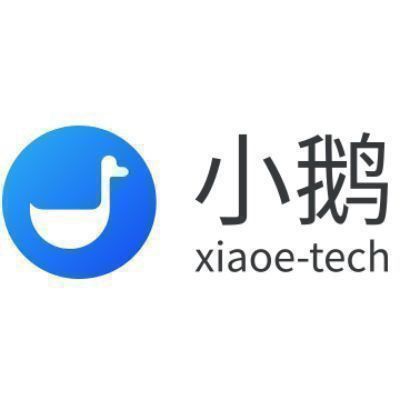In September 2016, Wu Xiaobo, a well-known financial writer found a team of engineers to help him upgrade the "Wu Xiaobo Channel" to provide paid audio content on business and economics for users through his WeChat official account. Within three months, Xiaoe Tech was born as a technical service provider for paid content using WeChat, the most-used social networking app in China.
In less than three years since, Xiaoe Tech has built up a solid customer base from the media, publishing houses and educational institutions. In addition to the Wu Xiaobo Channel, the startup's clients include Zhang Defen Space, Zhihu, Tencent Tech Courses and The Commercial Press, all big names in their own fields.
Xiaoe Tech provides a back-end system that its clients can use via Xiaoe Tech's website or WeChat official account to upload their knowledge-based content and sell and promote it through their online store, an html5 page created by Xiaoe Tech, within WeChat.
By December 2018, Xiaoe Tech's platform had been used by over 350,000 content providers to deliver 3.5 million courses worth RMB 2.2 billion to more than 200 million users via WeChat.
Speaking at the 6th Learning Conference in Shanghai in November 2018, Xiaoe Tech’s founder and CEO Bao Chunjian said the startup's customer base of content providers showed strong growth from not only personal development courses, but also from the education and training sectors. “One out of every ten Chinese people is learning via Xiaoe Tech’s service,” he added.
Since the pay-for-knowledge craze in China took off in 2016, the Chinese have been increasingly willing to pay to learn from subject-matter experts through online courses. By December 2018, about 55% of 800 million internet users in China have purchased knowledge-based content online.
The market for online courses, which was valued at RMB 4.9 billion in 2017, is estimated to grow to RMB 23.5 billion in 2020.
Easy-to-use tool
Platforms, including Quora-like Q&A website Zhihu and China’s largest audio sharing and service platform Ximalaya FM, began to bank on the knowledge-seeking public but content providers had to adhere to the platforms' requirements for content format and share their revenue with the platforms. For example, Ximalaya FM only accepts audio courses and takes a commission of 50% from customers' payment. There was also no tool to help content providers directly promote and sell their content to potential users.
Xiaoe Tech, which was founded by a group of former Tencent (developers and operators of WeChat) engineers, took the pulse of content providers who are not IT-savvy and developed a SaaS platform that content providers can use to easily upload their courses and at the same time take advantage of the ready market of over 1 billion active users of WeChat.
Unlike standard templates, which may be complicated and difficult to use to launch knowledge-based content online, Xiaoe Tech's platform automatically creates an online store within WeChat with a shareable link after clients register with its back-end system. Clients can then upload their courses in any format, such as, text, audio, video, live streaming or e-book and setup customizable options for users.
The back-end system also provides analytics tools allowing users to know more about their audience, such as, users' favorite content and time slots, which is important for content providers to launch the right content at the right time.
Xiaoe Tech can also help its clients market their courses. For a fixed annual fee ranging from RMB 4,800 to RMB 19,999, content providers can use sales promotion features provided by Xiaoe Tech, such as, promo codes, limited-time offers or group discounts.
New ways to monetize content
Since 2017, many institutional players, including educational institutions and publishing houses, began to explore how the pay-for-knowledge trend could be used to expand their business. Not surprisingly, many turned to Xiaoe Tech for the potential traffic from WeChat users to expand the audience for their online course content.
In September 2017, Ximalaya FM not only invested RMB 30 million in Xiaoe Tech but also used the startup's platform to build an online shop on WeChat. According to Xiaoe Tech's CEO Bao, Ximalaya did so because it believed that Xiaoe Tech's platform could help it gain greater exposure through WeChat.
In January 2018, Hujiang, an online platform for language learning with 170 million users, used Xiaoe Tech's service to open an online school in WeChat to supplement its own website and app.
By September 2018, online education institutions accounted for 40.2% of Xiaoe Tech's total clients compared to just 14.3% in March 2017.
Xiaoe Tech’s co-founder and COO Fan Xiaoxing told a conference in Guangzhou last December that many professional clients were entering the pay-for-knowledge online market. “They have content but need new ways to monetize the content online,” she said
Last September, Xiaoe Tech initiated the Alliance for Great Courses to connect content providers to platforms with a big user base. The alliance will publish authoritative lists on best-selling content, data analytics results and industry white papers to provide further insights into the pay-for-knowledge business. "It is not a tool for money making but will facilitate the development of the whole sector," said Fan.
Fan believes that the pay-for-knowledge industry has significant potential for expansion. “The growth space lies in the large number of users and institutions that have not entered the market, and the boundary of content payment is still far away,” she said.

















